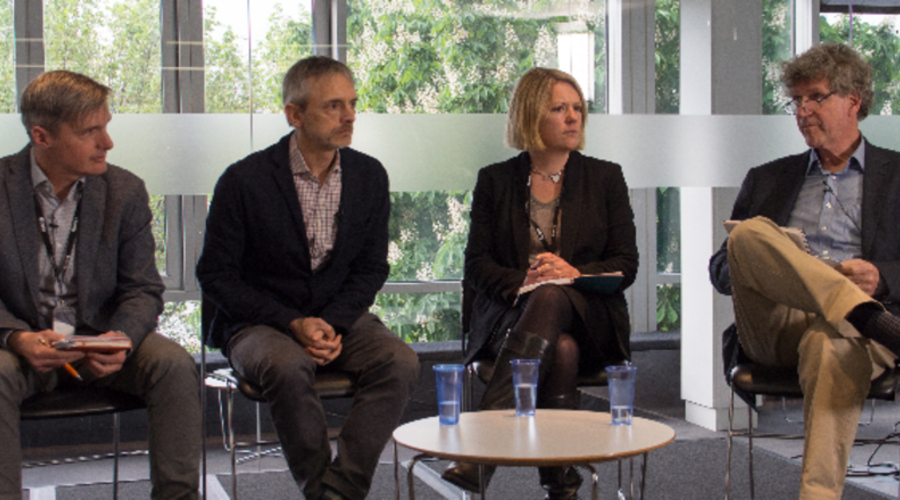Ofcom was in the firing line during London Centre’s panel discussion of the TV coverage of London’s mayoral election in May.
The people in charge of election programming at ITV London News and local TV channel London Live were both critical of the impartiality rules set by Ofcom for the election coverage.
Rachel Corp, Editor of ITV News London at ITN, said that the Ofcom rules made coverage of the election harder. “Ofcom decided London was just one big constituency and declared five of the parties standing as the major candidates, so those five had to have equal coverage,” she said.
This decision led to serious logistical problems for a local news programme with limited resources and airtime. “If we had to do five interviews in a day, it meant some other stories just couldn’t be covered. It also meant we couldn’t do a head to head between leading candidates Zac Goldsmith and Sadiq Khan. We had to do all five together and that gives you a totally different dynamic,” explained Corp.
“Since only two candidates stood a chance of winning, it meant the audience was not well served by those Ofcom rules,” she added.
Jim Grice, Head of News and Current Affairs at London Live, agreed that Ofcom’s rules made a difference to its coverage. “We do five hours’ news a day, so we had to balance it and keep a careful running score of what airtime each candidate was getting,” he said.
As well as covering the Conservative, Labour, Liberal Democrat, Green and UKIP candidates, as instructed by Ofcom, Grice said London Live also carried out interviews with the Respect’s George Galloway and Sophie Walker, the Women’s Equality Party candidate.
London Live broadcast two live debates between the candidates, jointly organised with its sister newspaper the Evening Standard. The first featured eight candidates plus a moderator, but the second had only the two leading candidates, Goldsmith and Khan. “That did lead to a problem with the Ofcom ruling,” admitted Grice.
The BBC sticks to its own guidance on impartiality and legal constraints on the coverage of election – not Ofcom’s – so it was able to find a more sensible balance in covering the different candidates.
“Zac Goldsmith and Sadiq Khan got the most coverage, with the next three – Liberals, UKIP and Greens – slightly less,” revealed Antony Dore, Editor of BBC London TV News.
The BBC held a debate between the top five candidates chaired by Andrew Neil and also did some Apprentice-style interviews with the candidates. “The power the mayor actually has is not enormous, so the personality and character of whoever fills that role is important,” said Dore.
The broadcast coverage was criticised from the floor of the event, which was chaired by University of Westminster Professor of Communications Steven Barnett, for the relentless focus on Khan allegedly having shared platforms with Islamic extremists. The broadcasters responded by saying that this was the campaign fought by the Conservative party.
“We asked many times of Zac Goldsmith, why are you conducting the campaign you are? That particular focus on Khan was the main part of their campaign,” said Dore.
All those on the panel, plus several in the audience, called for Ofcom to look again at its impartiality rules. “The political landscape has changed – the rules might have worked when there were just three parties – but they don’t work now,” said Corp.
The RTS London event, “The challenges of covering the London mayoral election”, was held on 18 May at ITV London Studios.

